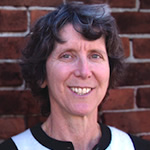Nora Goldstein
BioCycle September 2013, Vol. 54, No. 9, p. 4
Being in the trenches of all facets of sustainable organics recycling, it can be difficult to see the bigger picture. BioCycle prides itself by explaining, in detail, the art and science of composting, anaerobic digestion, food waste collection, compost utilization and much more. That is what makes BioCycle the Organics Recycling Authority. It’s a good thing, we think, especially for our readers whose jobs depend on making their organics recycling programs successful.
The downside is that we tend to make things more complicated than necessary when explaining to people outside of our universe why what we are doing is really important to their universe. This really hit us last month when attending the Green Sports Alliance Summit in New York City. The annual event, organized by the Green Sports Alliance, is designed for people in the professional and collegiate sports world responsible for managing facilities (and/or providing services to those facilities) attracting crowds that can number over 100,000 on any given game day. The main goal is to keep these sports fans happy and safe while they are in the stadiums or arenas. Therefore we have to be quick (and simple) when explaining why our universe and their universe should connect.
The explanation at the Green Sports Summit was “zero waste.” That was simple. This audience is responsible for managing waste, and having less of it is nice. The logistics of enabling them to strive toward zero waste is all of our universe’s knowledge — guiding food service contractors on source reduction, compostable product purchasing, sorting stations, hauling and composting contracts, etc.
Next month, BioCycle is holding the 13th Annual Conference on Renewable Energy From Organics Recycling (REFOR13), October 20-23 in Columbus, Ohio (see pages 15-18). This September issue features the BioCycle REFOR13 Conference Preview. We had an opportunity to interview several REFOR13 Conference keynotes, including Kenneth Kimmell, Commissioner of the Massachusetts Department of Environmental Protection (MassDEP), Jon Ratner, Vice-President of Energy, Sustainability and Asset Management at Forest City Enterprises, Inc. and Jeff Rich, Executive Director of Envision, part of Gundersen Health System. What these three individuals have in common is their interest — and in the cases of Forest City and Gundersen, their investments — in anaerobic digestion. Massachusetts is running out of landfill capacity. The state also has very high rates for electricity. Anaerobic digestion — and the energy that the process generates — were chosen to address those realities.
But what about Forest City and Gundersen? The former is one of the country’s largest real estate developers. The latter is a tri-state health care services provider in the Midwest. Both spend millions of dollars a year on energy to run their properties and facilities. Anaerobic digestion — and the energy the process generates — is one of their go-to technologies to better control their utility costs (and achieve sustainability missions). And Forest City is diverting (and plans to divert) food waste from its properties to the digesters it owns.
For the past several weeks, I have been working on articles based on BioCycle’s interviews with these keynote speakers. Writing the monthly editorial provides an opportunity to see the bigger picture. In this case, it boils down to two words: Energy “Independence.” Why are there quotation marks? To many outside of our universe, the phrase Energy Independence means freedom from foreign fossil fuels, especially oil. But these days, the U.S. is awash in domestic fossil fuels, so on that level, the country is moving toward independence. But what the Commonwealth of Massachusetts, Forest City Enterprises and Gundersen Health System have embraced is being fossil fuel independent –- ie, striving toward (or in the case of Gundersen, achieving) zero fossil fuel. Ultimately, to save the planet, all universes, not just our organics recycling universe, will be speaking the zero fossil fuel language.










